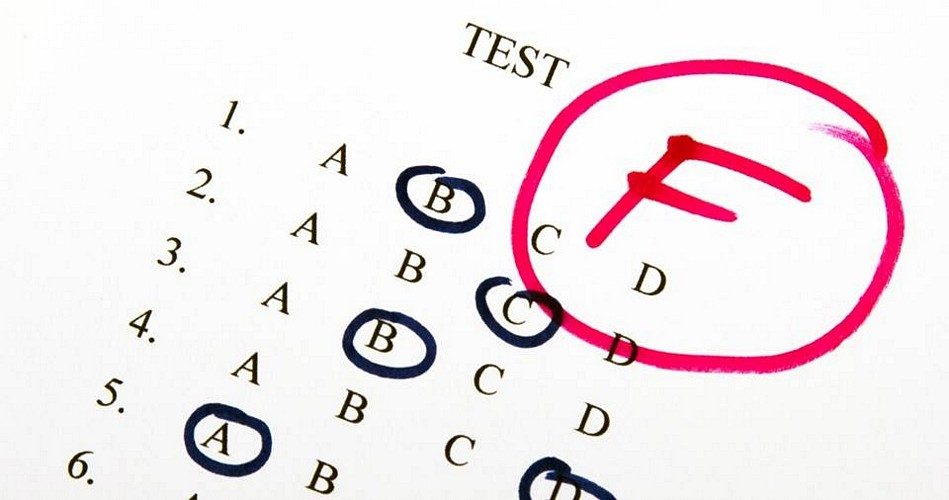
The Woodrow Wilson Foundation has announced that only four of every 10 Americans were able to pass the U.S. citizenship test, the test given to immigrants seeking citizenship. Foundation President Arthur Levine said, “Unfortunately, the Woodrow Wilson Foundation has validated what studies have shown for a century: Americans don’t possess the history knowledge they need to be informed and engaged citizens.”
The only state in which a majority of citizens — 53 percent —were able to pass the test was Vermont.
“Among all 50 states and the District of Columbia, Vermonters were the sole group able to pass the multiple-choice test. Even more disturbing, only 27 percent of those under the age of 45 nationally were able to demonstrate a basic understanding of American history,” the Foundation explained in a statement.
In fact, only 15 percent of adults knew in what year the Constitution was written (it was 1787), while a mere 25 percent knew that there were 27 amendments.
Following Vermont as the top-scoring states were Wyoming, South Dakota, Montana, and Virginia. The lowest-scoring states were Mississippi, Alabama, Arkansas, Kentucky, and Louisiana.
The Woodrow Wilson Foundation is advocating for better history education.
The dismal results from the work of the Wilson Foundation certainly indicate that civics education needs improvement. It is not as though the questions are particularly difficult. For example, one multiple-choice question asks who said, “Give me liberty or give me death?” At one time, almost all Americans knew that it was Patrick Henry who uttered these words at the end of his speech on March 23, 1775 encouraging his fellow Virginians to aid the city of Boston, which was then under a British military dictatorship led by General Thomas Gage.
How many Americans today are aware that it was General Gage’s order to confiscate all privately-owned firearms in Boston that led to the first shots of the American Revolution? (Fired with an unregistered gun, by the way.) The Wilson Foundation’s survey makes it quite clear that most Americans are woefully ignorant of their own nation’s history, but it does not offer a reason why that is, but merely advocates for “better history education.”
While some would suggest throwing money at the problem, more money is not the solution. The problem is that many schools in America no longer teach American history — or at least they do not teach such topics as how the colonies were formed, why the colonies rebelled against the British Empire, or why the Founders created a federal system of government rather than a unitary system.
What students do “learn” is part of the problem. They are told, far too often, that the very founding of the country was illegitimate — with much of the emphasis on such issues as slavery and mistreatment of Indian tribes. While both of those issues should certainly be covered, they are covered in such a way as to demean the Founders of the country and their work, including the Declaration of Independence and the Constitution.
One reason that so many Americans favor the abolition of the Electoral College is that it is never, or almost never, explained to them why the electoral system of choosing the president was adopted. Students are given racially-charged “reasons” such as it was created to perpetuate slavery (which is not true). The faults of the Founders are magnified, while their achievements are downplayed, if mentioned at all.
The citizenship test can be found online. The questions are not difficult — it is certainly not rocket science. Examples of the questions are: What are the first three words of the Constitution? (We the People); What do we call the first 10 amendments? (The Bill of Rights); Who is in charge of the executive branch? (The president).
Somewhat surprising, although encouraging, is that one of the possible answers to the question “What are two rights found protected in the Bill of Rights?” is “the right to keep and bear arms.”
Another question and answer found on the citizenship test should also be asked of every nominee to the federal judiciary: Who makes federal laws? The answer provided in the citizenship test is actually quite correct (the Congress), but for some reason, far too many federal judges and law-school professors argue that Supreme Court decisions are “the law of the land.” But, since Article I of the Constitution clearly states that all lawmaking powers granted in the Constitution are within the province of Congress, that cannot be true.
Such low scores on the citizenship test raise another question. Should we keep the Constitution that we have, crafted by such men as James Madison, George Washington, and Alexander Hamilton, or should we call for a second constitutional convention, in which delegates would be chosen by Americans today — Americans who fail to make a passing grade on an easy citizenship test and Americans who have seen fit to make Nancy Pelosi the Speaker of the House?
That should be an easy question to answer for any American who wants to keep our constitutional republic.
Image: czarny_bez via iStock / Getty Images Plus



